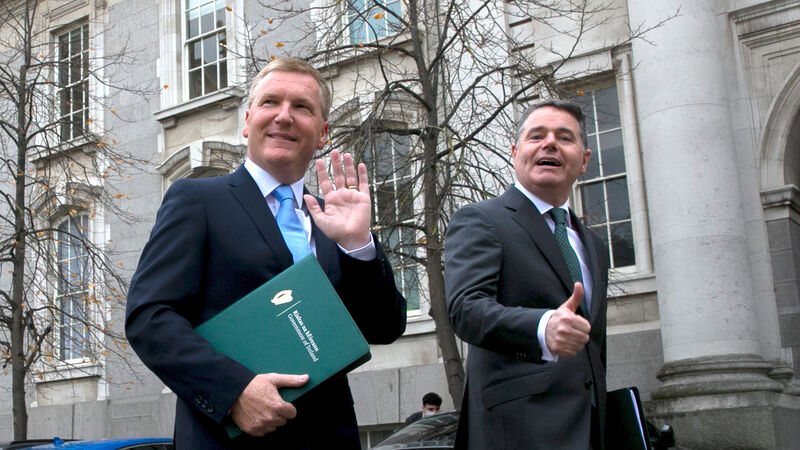Anthony Foley: Ireland's taboo on borrowing has been temporarily broken

The keeping to the original Budget package by Minister for Public Expenditure and Reform Michael McGrath and Minister for Finance Paschal Donohoe was welcome… and brave. Photo: Gareth Chaney /Collins Photos Dublin
This budget was brave. It resisted the temptation to spend more than was previously committed to despite a better-than-expected public financial position coming into the budget and it went ahead, as planned, with carbon tax increases despite the expected energy price increases.
As usual, the money available at budget day falls far short of the total asks and expectations. This is more pronounced than usual for Budget 2022 for two reasons.













